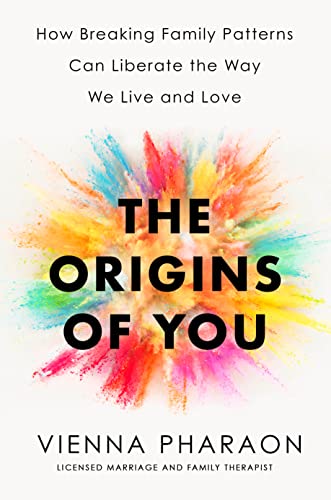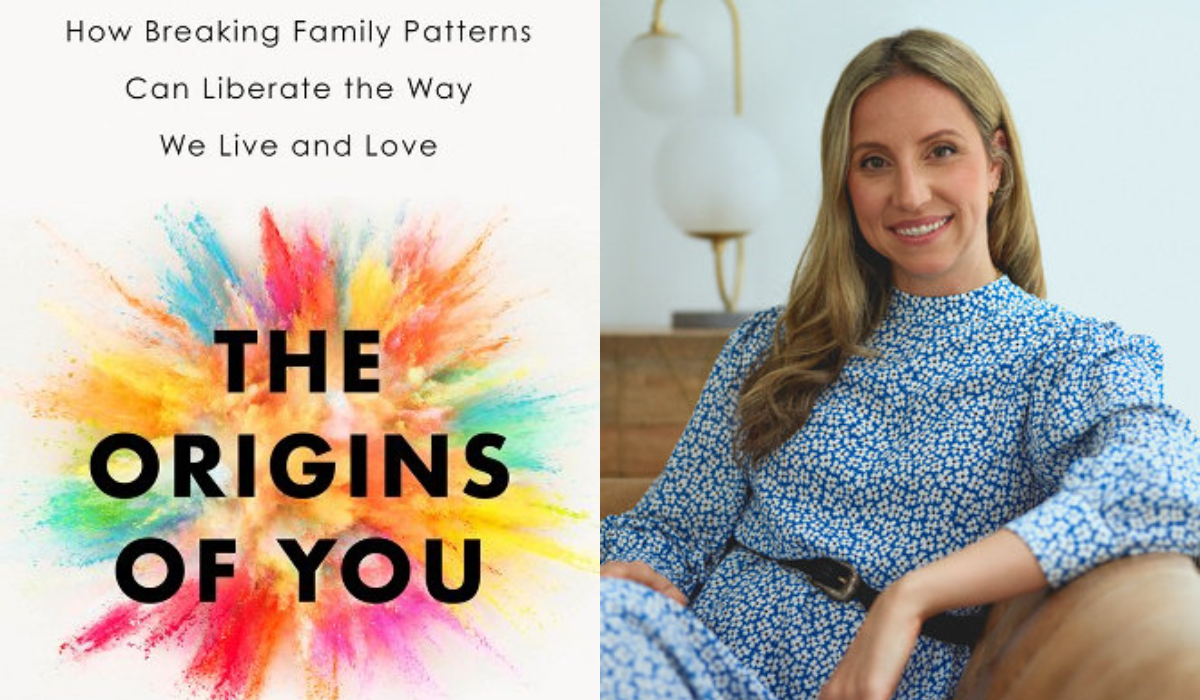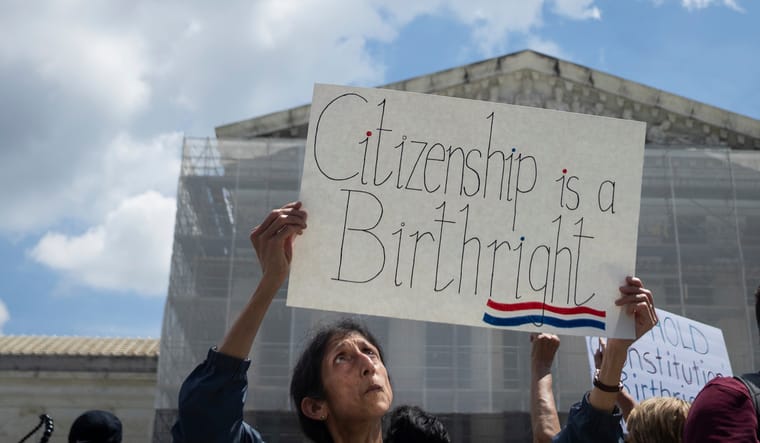Therapist Vienna Pharaon With the Advice You Need to Break Old Patterns, Release Shame, and Liberate Your Life
Vienna Pharaon is a licensed Marriage and Family Therapist widely beloved for her compassionate approach to healing. (Her insightful posts on Instagram have garnered her a robust and loyal following.) Her debut book, The Origins of You: How Breaking Family Patterns Can Liberate the Way We Live and Love, explores the crux of her work: Helping people to find and heal their “origin wounds”—unresolved trauma from our past that keeps us stuck in old patterns, disconnected, and unable to feel fully alive. “I work with individuals, couples, and families all day, every day, every week,” she tells us. “It’s the greatest honor, and those people show me, day in and day out, that change is possible.
This work came to Pharaon personally. In her twenties, she began to unpack pain deep from her childhood that had led to unhealthy behaviors that held her back. Her book, filled with honest and raw stories of hers and her clients, beautifully captures the life-opening experience of looking back to then move forward with clarity and freedom. The Sunday Paper chatted over Zoom with Pharaon to talk about her experience, what often holds us back from doing origin healing work, and where we can begin to find our origin wounds and thus liberate ourselves from them.
A CONVERSATION WITH VIENNA PHARAON, LMFT
At the beginning of your book, you tell your story of how you hid from your pain and origin wound. How did doing so hold you back?
I learned this was my protective strategy: to pretend like I was unaffected. It would've been too much for me to feel the emotions, to feel the pain, to feel the hurt that was there. And for so long, I became this needless little girl who became this adult woman who pretended to be unaffected and unbothered by anything. Encountering my pain was so foreign. I didn't know how to take up space emotionally, until my late twenties when I finally started to see that I had kept and maintained this role from childhood.
We often don't really understand how that pain from the past is dictating and maintaining unwanted patterns today. My hope is not for us to turn around and stay stuck in the past. I say, let’s look and let’s understand what's there so then we can move forward.
You choose to never, “throw our parents under the bus,” as you say, or to blame others in our healing. Tell us the importance of this.
When we point the finger at others, it keeps us in the victim position. Of course, there are things that happen to us. But when we only use that pointer or that blame, there's nowhere for us to go. That's not action. That’s a limitation. Sometimes we have to hang out in that place for a little bit to feel our anger or feel our rage, but if we stay in the place of you did this to me, you are to blame, there's nowhere for us to go. Yes, adults ought to be accountable, and responsible, but when they're not, which often is the case, then we are still owned by that if we don't move out of the victim position.
You say our origin stories can be “the roadmap to our healing” once we’re willing to look. What if someone is reluctant to look?
Sometimes people don’t want to turn back. They think my childhood is good. And I get that. For one, it can be hard to turn back. What are we going to find if I open Pandora's box? Two, people may like the relationship that they’ve been able to create with their family and they don’t want to disrupt it. And three, it may be that someone in their family is deceased, and they don’t want to change the image they hold of them. Sometimes we idealize or sometimes we just don't even have the memory because our way of protecting ourselves is to not hold the memory itself.
This work is never a push for people. People can always set that boundary and say, ‘I'm not going to go there.’ That's okay. There are plenty of therapeutic practices that are focused on just changing behavior. But if you keep trying to change your behavior and you keep finding yourself back in the same pattern, then I really emphasize—and I’m not going to say ‘always’—that there is something from the past.
I would never say to people ‘we have to.’ Never. I always want to respect that boundary. Instead of brute forcing, I would ask: ‘What are you afraid of? What’s keeping you from going there?’ This will begin to help you get curious about what it is that you’re protecting.
In your book, you share some of your clients’ stories. Why is storytelling a powerful tool in this sense?
What I’ve found in my work is how much we can start to see ourselves through the stories of another. It becomes more disarming when we don't need to necessarily look at our family, but someone else’s family may sound like ours. So, then we can start to learn through that person.
You talk about wound comparison. Walk us through this, as well as some other things that hold us back from doing origin healing work.
Wound comparison is where we somehow compare ourselves to the stories and the pain of other people. We use this as a way to minimize or maximize our story and our pain. This is a distraction away from our healing work. Our job is not to compare. We know that other people have terrible things that have happened in their lives, but if somebody having it worse erases your story, there's nowhere for you to go. You don’t want to erase your story.
Another thing is when people are super focused on solutions. The fear of having to turn your head and go back may feel like you’re going in the opposite direction. But I say, let’s go on this journey. Then suddenly, bam, it opens up. Our behaviors and choices are a constant effort of protecting the self from something. So whatever those resistant pieces are, some of which I mentioned earlier—afraid of looking back, afraid of what you might find—I say go at the pace that works for you.
With this book, you can read it in the comfort of your own home, at a pace that works for you. Some people may flip right through the book while others may have to put it down, pause, and see where it settles. Sometimes what happens in the therapy room is that the thing that doesn't feel safe starts to become safe with your therapist over time. Our systems are beautiful, brilliant systems that are protecting us from something. And when we can start to understand what it is that we're protecting ourselves from, then we can start to gently and carefully strip away some of those constraints to get into the heart of it.
There’s no cliff notes version to this, of course. But for those of us eager to begin origin healing work, where can we start?
This one question was so powerful for me: What is it that you wanted most as a child and didn't get? That’s such a great question for anyone, anywhere, wherever you are in the journey if you’re willing to go there. Just be mindful to not wound compare. Stay in your own lane. Connect to your story and honor what happened.
Another place to start is to notice where we are the most reactive. What are the things that make us most reactive with our partners or at work or perhaps with a parent? Ask yourself, what’s the thing that activates me the most? The reactivity is one of those neon arrows pointing to an origin wound. The reactivity lets us know that something historical is here.
Also, a great starting point can be my What’s Your Origin Wound? Quiz. It’s a free quiz where you answer a bunch of questions and it'll tell you what your primary origin wound is as a starting point.
As we’re peeling back the layers and doing this work, how can we best care for ourselves?
When you're tuned into yourself, honor the pause. Put the book down, take a step away when needed, and read it alongside a friend or therapist.
Also, be intentional about creating an environment for yourself where you feel grounded, relaxed, safe, and cared for. Ask yourself, am I prepared to go into this space? Do I have a meeting after this? Or do I get to chill after and take a few beats? It’s about being mindful and allowing yourself to drop into what's going to be there.
Lastly, we appreciate the quote in your book “Your life isn't out to get you, it's out to be healed.”
That reframe is so important. Your wounds aren't here to destroy you. It’s like they’re tugging at you. They want your attention so they can be healed and so you can move forward. Our past does not want to keep you in dysfunctional patterns. This is not fun for anyone! But we really don’t get to move on until you acknowledge your story, because otherwise, you wind up abandoning what happened. So that tugging is not your pain saying, ‘Hey, I want to screw you over.’ Rather it's saying, ‘hey, please see me so that we can move forward.’

Vienna Pharaon is a licensed Marriage and Family Therapist based in New York City. She received her Master of Science in Marriage & Family Therapy from Northwestern University, and trained extensively at The Family Institute, Bette D. Harris Center. She also received training at Family Focus. Her debut book is The Origins of You: How Breaking Family Patterns Can Liberate the Way We Live and Love, which you can order here. Learn more at newyorkcouplescounseling.com and follow Vienna at @mindfulmft .
Question from the Editor: We appreciated Pharaon's quote "your life isn't out to get you, it's out to be healed." How does this resonate with you? We'd love to know in the comments below!
Please note that we may receive affiliate commissions from the sales of linked products.



